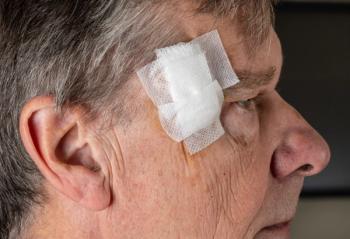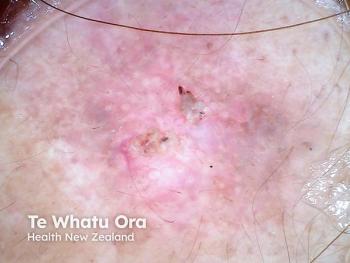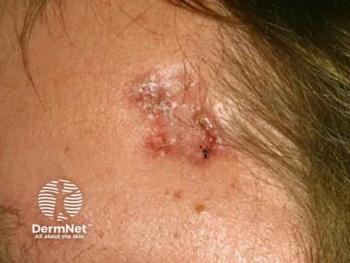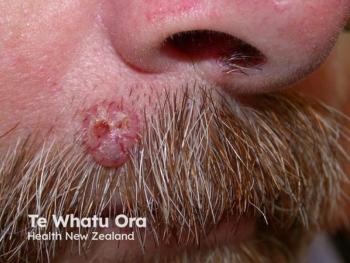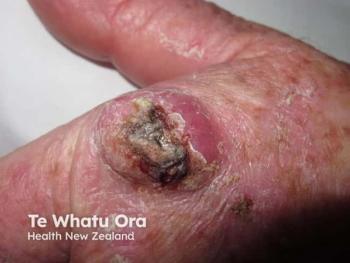
Data Support the Use of First-/Second-Line Immune Checkpoint Inhibitors in HNSCC
Findings from a retrospective cohort study found that immune checkpoint inhibitors induced promising responses in the first- and second-line treatment of head and neck squamous cell carcinoma.
Immune checkpoint inhibitors (ICIs) yielded promising outcomes for patients with recurrent or metastatic head and neck squamous cell carcinoma (HNSCC), according to findings from a retrospective cohort study published in JAMA Otolaryngology, the data of which support the modality in the first- and second-line treatment of disease.
ICIs resulted in an overall response rate of 30.1%. Investigator reported an estimated 1-year overall survival (OS) rate of 51.8% (95% CI, 44.5%-58.8%), and an estimated 1-year progression free survival (PFS) rate of 9.4% (95% CI, 5.0%-15.5%) in this study population. Moreover, the median OS was 12.9 months ([Interquartile range [IQR], 4.1-36.5) and the median PFS was 3.9 months (IQR, 1.9-17.8 months). Patients with cancer of the oral cavity fared worse on ICIs than patients with HNSCC of other subsites, experiencing worse OS.
“In this large cohort study of patients with recurrent or metastatic mucosal HNSCC from the general population who were treated with [ICIs], the observed survival and response rates were similar to those observed in previous clinical trials despite 31.1% of patients having an ECOG performance status of 2 or greater,” the investigators wrote. “Our findings support the use of [ICI] therapies for first- or second-line treatment of recurrent or metastatic HNSCC.”
This study evaluated 212 patients with HNSCC treated with ICIs, most of whom (50.9%) had distant metastatic disease at the time of treatment initiation. Moreover, 58.0% of those with distant metastases had oligometastes. Most patients in the cohort were male (77.8%) and most were current or former smokers (69.8%). The median age at diagnosis was 63.2 years (IQR, 57.2-71.2 years). The most common primary tumor sites included the oropharynx (46.7%)—75.8% of whom had human papillomavirus (HPV)–associated disease—the oral cavity (28.8%) and the larynx or hypopharynx (24.5%). PD-L1 status was not included in multivariable models since only 43.9% of the patient population had PD-L1 test results available.
Patients in the study cohort underwent ICI therapy for a median duration of 2.9 months (IQR, 1.4-7.5) and completed a median of 5 doses (IQR, 3-10). In total, 167 patients discontinued treatment during the study period, most commonly because of disease progression (72.5%) and toxic effects (12.6%). However, 6 patients (3.6%) stopped treatment after achieving durable response lasting 12 months or more.
Outcomes with ICI therapy in combination with chemotherapy did not differ from those who did not receive chemotherapy. Additionally, among the 183 patients with imaging data available after treatment, 8.2% demonstrated a complete response, 21.9% demonstrated a partial response, 9.3% demonstrated a mixed response, 20.2% demonstrated stable disease, and 40.4% demonstrated disease progression. Patients with HPV-positive oropharynx cancer (odds ratio [OR], 2.032; 95% CI, 0.758-5.452) and those with other primary tumor sites (OR, 1.948; 95% CI, 0.751-5.053) experienced numerically higher response rates than patients with the oral cavity as their primary site; however, the differences were not found to be statistically significant.
Treatment-associated adverse effects occurred in 50 patients, the most common of which were thyroid function abnormalities (44%), rash (30%), and colitis (18%).
Reference
- Hobday SB, Brody RM, Kriegsman B, et al. Outcomes Among Patients With Mucosal Head and Neck Squamous Cell Carcinoma Treated With Checkpoint Inhibitors. JAMA Otolaryngol Head Neck Surg. 2022;148(10):918-926. doi:10.1001/jamaoto.2022.2284
Newsletter
Like what you’re reading? Subscribe to Dermatology Times for weekly updates on therapies, innovations, and real-world practice tips.


